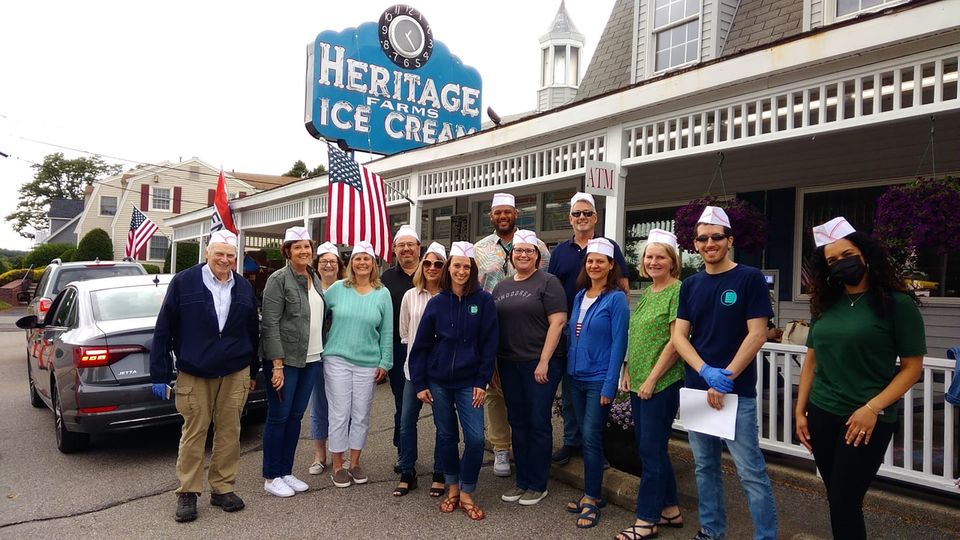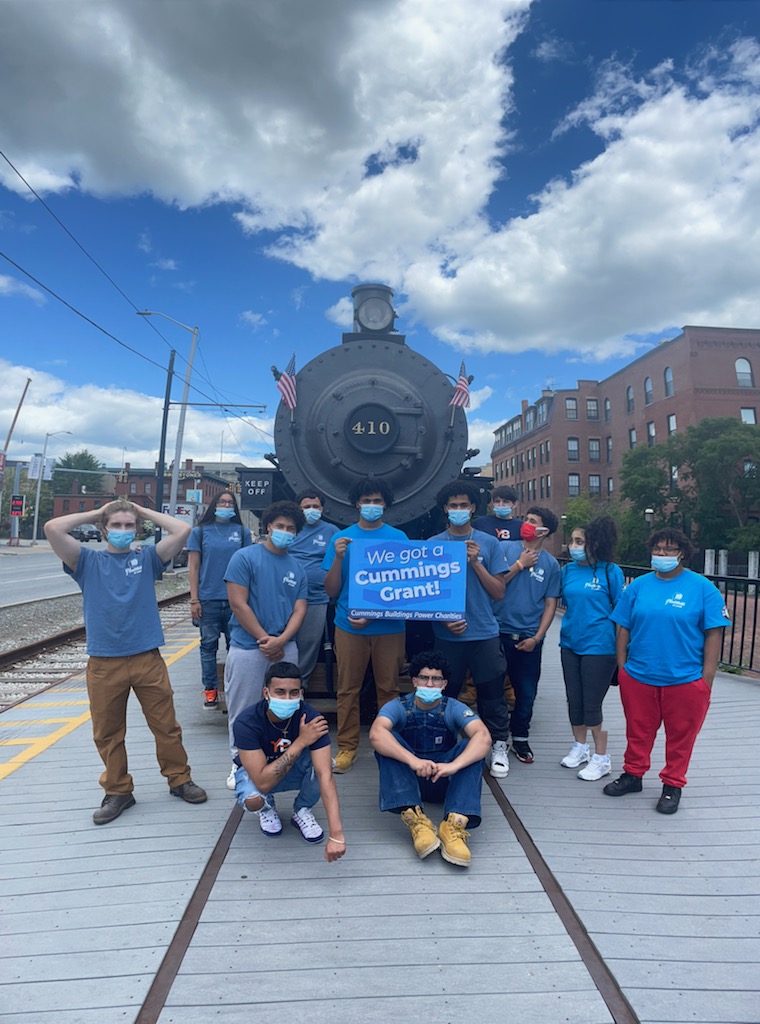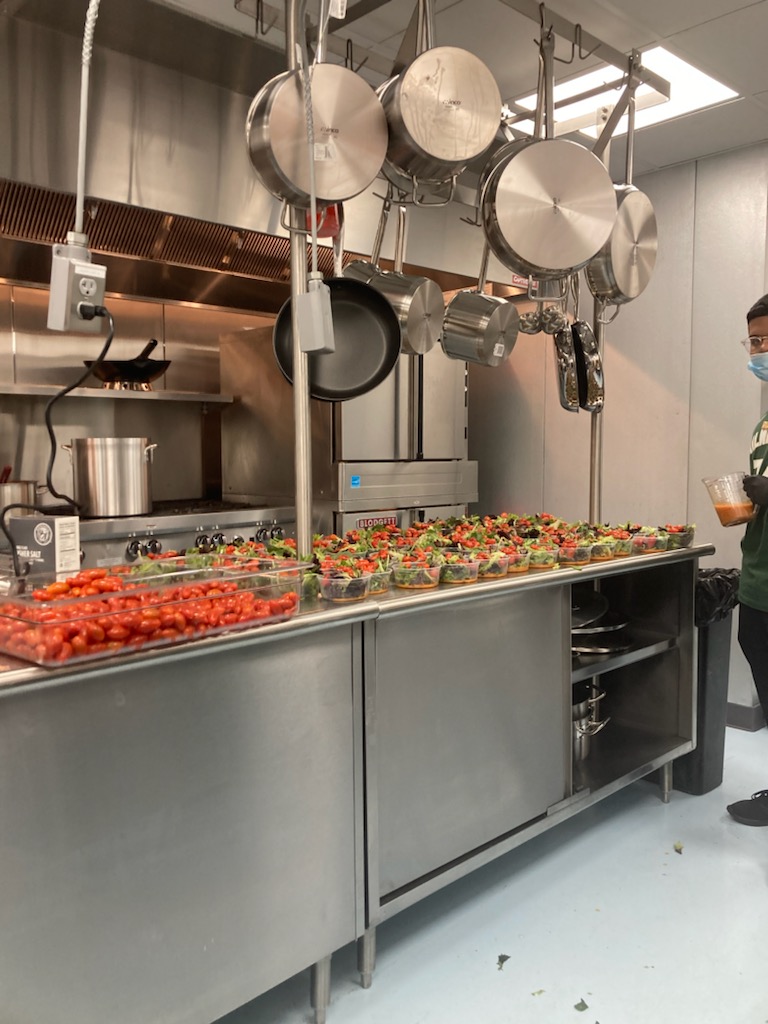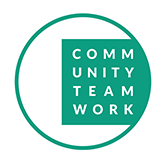

Spring Celebration 2024 & Commemoration of 60 years of Community Action




LOWELL — In at least three Greater Lowell communities, more than half of renters are what the U.S. Department of Housing and Urban Development considers rent-burdened, meaning they spend 30% or more of their household income on rent.
View full article with graphs on the Lowell Sun CTI Community Needs Assessment underscores need for affordable housing in Greater Lowell
or on our website https://bit.ly/3x0FDXC
In Lowell, it’s 55% of renters, in Tewksbury 53% and in Dracut 51%. Chelmsford and Billerica aren’t that far behind, at 45% and 43%, respectively.
The median gross rent for a two-bedroom apartment is highest in Westford at $1,940 and lowest in Tyngsboro at $1,115, but good luck finding an available apartment in a town with an effective 0% rental vacancy rate.
Since 2010, the rental vacancy rate across the region has dropped significantly, even with modest increases in total rental housing stock in communities like Billerica, Lowell and Westford, showing the demand far has outpaced the growth.
Even in Lowell — which has the greatest ratio of rentals at 58% of total housing units — the vacancy rate is only 5%. Every other Greater Lowell community is well below the state average of 38% of housing units occupied by renters, with most ranging about half that amount or less, creating a rental scarcity across the region.
These were among the findings of Community Teamwork Inc.’s 2021 Community Needs Assessment, underscoring the region’s need for more affordable housing.
“People need it, and the community does not have enough of it,” said CTI Director of Planning and Quality Improvement Ann Sirois.
CTI conducts a community needs assessment every three years as part of its strategic planning process.
“We do a whole host of things, but a big piece of it is really sitting down and trying to gather data directly from the community to try to find out what it is that everyone around here says that they need and what they think their neighbors need,” Sirois said.
She said CTI received nearly 1,500 responses directly from community members, interviewed 19 key informants from 17 organizations, conducted 18 focus groups with 133 different people and used publicly available data from a number of state and federal agencies.
The data collection began in fall 2019 and was wrapping up in early spring 2020 just before the coronavirus pandemic hit, Sirois said. With so much changing over the course of 2020 due to the pandemic — including a huge jump in the unemployment rate from 3.5% to 20% — as well as the national conversation on racism, these factors necessitated additional analysis of the impact of both on poverty that was also included in the report, she said.
Sirois said it wasn’t a surprise that there is a housing crisis in Massachusetts and the region, and talking to community members helped to determine what they need in order to get appropriate housing: better-paying jobs, education and training to obtain and sustain those jobs, affordable child care, medical and behavioral health care and transportation.
With so many people in the area dedicating large shares of their incomes to housing costs, it means many were at risk of a minor emergency jeopardizing their ability to pay their rent, and homelessness as a result — even before the pandemic, she said.
“Then, of course, we saw COVID hit, which was an extremely huge emergency,” Sirois said.
The lack of affordable housing has been an issue across the state. Several weeks ago Gov. Charlie Baker signed “An Act Financing the Production and Preservation of Housing for Low and Moderate Income Residents” to ensure long-term support for the Baker administration’s efforts to increase the production of affordable housing, diversify the state’s housing portfolio, modernize public housing, preserve the affordability of existing housing and invest in new, innovative solutions to address Massachusetts’ rising demand for housing.
The region’s aging housing stock and quality is also problematic, especially for families with young children, Sirois said. All units built before 1979 must be deleaded to house children age 6 and below and many owners don’t take on the costly process, often preventing families from renting available units. This problem is most prevalent in Lowell, one of the region’s more affordable communities, where 82% of units were built before 1980.
“In virtually every area, Lowell has the most significant needs,” Sirois said.
CTI Director of Development and Marketing Kathleen Plath said it’s particularly difficult to create affordable housing in Lowell because it’s not advantageous for developers unless the project is of a significant size, like 40 units. She said more attention needs to be given to assisting smaller developers and multifamily building owners to improve the quality of the overall housing stock.
CEO Karen Frederick said CTI often hears of many young people who graduate from UMass Lowell and Middlesex Community College and can’t afford to live in the region because the cost of rent is so high.
“We want to make sure there’s housing for everybody — for people starting off their careers, for seniors,” she said. “Affordable housing for seniors is critical as baby boomers continue to age into retirement, and for families, where there’s already been a critical shortage.”
While the assessment covers many diverse needs, Sirois and Frederick said one of the areas they were surprised to see consistently pop up in conversations was the need for more after-school and summer programming for older children — and this was before the child-care crisis that resulted from pandemic-related shutdowns, Plath said.
As communities start to look at how to best use their federal American Rescue Plan funding, the Community Needs Assessment can offer ideas of where to direct that money and address those needs, Plath said. She said CTI will engage with its partner organizations, municipal governments and school districts to share the results and encourage investment in the areas of highest need.
Frederick said CTI hopes people and institutions will take a look at the information in the assessment and that it will be “well used.”
“I have always believed in the power of the collective work, and if we work on things together, we’ll make progress,” she said.
One such organization that has already put CTI’s Community Needs Assessment findings into action is the Greater Lowell Community Foundation.
President and CEO Jay Linnehan said he used the previous assessment to help direct philanthropy within the foundation, and he will do the same with the new set of information as well, including a funders’ meeting focused on combatting youth food insecurity this week.
He said the pandemic in particular really brought to light how many people in the area are living “close to the edge” and their critical needs that must be met.
“The thing that a community foundation is all about is being boots-on-the-ground philanthropy in the community that you serve, and so it’s really important from my perspective to understand the needs of the community, and that needs assessment does that,” Linnehan said. housing





Lowell Nonprofit receives 3 years of funding from Cummings Foundation

Lowell, May 27, 2021 – Community Teamwork is one of 140 local nonprofits to receive grants of $100,000 to $500,000 each through Cummings Foundation’s $25 Million Grant Program. The Lowell-based organization was chosen from a total of 590 applicants, during a competitive review process.
As a Community Action Agency, a Regional Housing Agency, and a Community Development Corporation, CTI helps nearly more than 54,000 individuals from 64 cities and towns in northeastern Massachusetts gain greater economic independence.
“We are beyond thrilled to receive this grant from the Cummings foundation. These funds will enable our YouthBuild organization to continue to train at-risk youth in the culinary arts and prepare them for future careers in the local hospitality industry, which is experiencing a serious labor shortage. We could not carry out our mission without the generosity of people like Joyce and Bill Cummings.”, stated Karen Frederick, Chief Executive Officer.
Community Teamwork will use the funding from the Cummings Foundation, to support its Culinary Arts Vocational Tract for at-risk youth interested in entering the hospitality industry. After a recent successful capital campaign, Community Teamwork was able to install a new state of the art commercial kitchen at its Youth Opportunity Center at 167 Dutton Street. Using the new funding Community Teamwork will be able to expand and solidify its catering program, with the goal of creating a YouthBuild Lowell Social Enterprise Catering Business, which will build on the solid customer base YouthBuild has created over the past couple of years. In addition, the creation of a YouthBuild Lowell Catering Business will offer additional work experience for its participants, provide financial education, and increased technical and soft skills to help increase their ability to be thrive and work in the private sector, once ready.
The Cummings $25Million Grant Program supports Massachusetts nonprofits that are based in and primarily serve Middlesex, Essex, and Suffolk counties.
Through this place-based initiative, Cummings Foundation aims to give back in the area where it owns commercial buildings, all of which are managed, at no cost to the Foundation, by its affiliate Cummings Properties. This Woburn-based commercial real estate firm leases and manages 10 million square feet of debt-free space, the majority of which exclusively benefits the Foundation.
“We aim to help meet the needs of people in all segments of our local community,” said Joel Swets, Cummings Foundation’s Executive Director. “It is the incredible organizations we fund, however, that do the actual daily work to empower our neighbors, educate our children, fight for equity, and so much more.”
With the help of about 80 volunteers, the Foundation first identified 140 organizations to receive grants of at least $100,000 each. Among the winners were first-time recipients as well as nonprofits that had previously received Cummings Foundation grants.
“We have adopted a democratic approach to philanthropy, which empowers and impressive roster of dedicated volunteers to decide more than half of all our grant winners each year,” said Swets. “We benefit from their diverse backgrounds and perspectives; they benefit from a meaningful and fulfilling experience; and the nonprofits often benefit from increased exposure and new advocates.”
This year’s grant recipients represent a wide variety of causes, including social justice, homelessness prevention, affordable housing, education, violence prevention, and food insecurity. The nonprofits are spread across 43 different cities and towns. The following Lowell-based organizations received $100,000 grants from the Cummings Foundation: Community Teamwork, Inc., Merrimack Valley Food Bank, and Middlesex Community College Foundation. Mill City Grows is the only Lowell-based organization to receive a 10-year grant.
The complete list of 140 grant winners, plus more than 800 previous recipients, is available at www.CummingsFoundation.org.
Cummings Foundation has now awarded more than $300 million to greater Boston nonprofits.
Community Teamwork is a catalyst for social change. Our driving mission is to help people help themselves with child care, family supports, nutrition, fuel assistance, housing, skills training, employment, financial education, and individual asset and small business development. As a Community Action Agency, a Regional Housing Agency, and a Community Development Corporation, Community Teamwork helps nearly 54,000 individuals from 71 cities and towns in northeastern Massachusetts gain greater economic independence.
Woburn-based Cummings Foundation, Inc. was established in 1986 by Joyce and Bill Cummings and has grown to be one of the three largest private foundations in New England. The Foundation directly operates its own charitable subsidiaries, including New Horizons retirement communities in Marlborough and Woburn, and Veterinary School at Tufts, LLC in North Grafton. Additional information is available at www.CummingsFoundation.org.
###
May 27, 2021
Alison Harding Cummings Foundation 781-932-7093
Julia Ripa
978-654-5628



Sign up for our E-Center newsletter for the latest news and events from Community Teamwork.
Pam Houlares is a native Bostonian born into a large Greek family. She grew up in a large extended family with aunts, uncles and cousins in the Boston area. Both sisters, including her twin, experienced a strong bond with their Greek culture and identity. After graduation from UMass Amherst, Pam’s older sister became a nun in Greece and has lived there for about 50 years. Her twin sister, Natalie, is a real estate broker with Sotheby’s in Boston.
In Pam’s 37 years in education, she began as a Spanish teacher, Curriculum Coordinator, and ultimately, a Principal of Jonas Clarke Middle School in Lexington, MA. After retirement, Pam worked in two colleges as an Adjunct Professor instructing courses in administration and continues as a Spanish tutor in her home -town.
During 2016 – 2020, Pam served as the President of the Hellenic Women’s Benevolent Association, a non-profit that oversees the Hellenic Nursing Home in Canton, MA. In fact, Pam’s mother, Jennie, was one of the founders of the nursing home in 1973. Pam continues to serve on the Board of Directors at the Hellenic Home.
Pam and Jim have four grandchildren, James, Conor, Catherine and Theodore, who live nearby, Aside from some babysitting, Pam and Jim feel very fortunate that they are very close and celebrate holidays and family events together.
Pam’s husband, James, has devoted his entire career to early childhood education. Jim displays that same enthusiasm and love of children to this day, and is adored by his children and grandchildren, alike. Both Pam and Jim are pleased that to continue to be a part of the CTI family and have contributed greatly to the Early Education programs at Community Teamwork.
James Houlares was born and raised in Auburn, Maine, He has a twin sister and also married a twin who has a twin sister as well. James has an older and younger brother as well. James and Pam have been married since 1974 and lived in Wellesley and now South Natick. They have two children, Nathaniel and Elena, named after my father-in-law and mother. Nathaniel and Christina have two children, Catherine (2.5 years old) and Theodore (7 months). Elena and John have two children, James (9) and Conor (7).
In1962, Jim arrived in Boston to attend the Hellenic College and Holy Cross School of Theology to earn a Bachelors and an advanced degree. His studies continued at the University of MA in Amherst where he earned his Masters. Jim’s first job with Head Start was as a teacher in Lewiston, Maine 1969 – 1971. After earning his Masters, in 1973, he was hired as an Education Coordinator at the Head Start program at Community Teamwork. At that time, CTI served 120 children in six classrooms. When Jim retired in 2005, the Agency served more than 516 Head Start and Early Head Start children.
During Jim’s 32 years at Community Teamwork, he was involved with many challenging and exciting initiatives including:
MA Education Coordinators Association
CDA Advisor and Instructor
State Supplemental Funding for Head Start Programs
Planned and designed the James A Houlares Early Learning Center in Lowell
Chaired the State Head Start Association
Hiring the First Executive Director of the MA Head Start Association
Chaired the New England Head Start Association
Jim presently serves on the following boards: New England Head Start (NEHSA), National Head Start (NHSA), and the Thom Child and Family Services.
Jim is forever grateful to Community Teamwork Inc. for the opportunities it offered to him in the field of early learning and care for children and families, and Community Teamwork is forever grateful to Jim for his contributions to the field of Early Learning and his additional contributions to Community Teamwork over the past few years.
Community Teamwork is celebrating Bill Lipchitz’s retirement after a legendary 51-year career. He currently serves as the Director of Real Estate Operations for Common Ground Development Corporation, a Community Teamwork subsidiary that develops affordable housing for low-income families in northeast Massachusetts. He oversees several other Community Teamwork subsidiaries, including Merrimack Valley Housing Services, Inc. and Mechanics Hall Corporation, and serves as a Special Assistant to the Executive Director working with the Community Teamwork Board on Board Development and Governance.
Bill’s career at Community Teamwork started in 1971 when he was hired as a Community Planner. Initially, Bill was assigned to the Town of Dracut to assist the Town in identifying and applying for grants. Bill was quickly promoted to Deputy Director of the Agency and served in that position for many years. Bill transitioned to oversee the Agency’s subsidiary, to assist Common Ground in implementing its vision of building and managing a portfolio of affordable housing. Common Ground has grown, and now supports family and senior housing in Methuen, Lowell, Acton, and Westford. Common Ground is currently working on new developments in Acton and Dracut and is assisting Community Teamwork and its partners in developing at least 300 units of permanent housing for homeless individuals.
Bill has devoted his life’s work to Community Action and to the City of Lowell, not only at Community Teamwork but in his many other roles including serving as Clerk of the Lowell Development and Financial Corporation, President of the Center City Committee, and on the Boards of the Cambodian Mutual Assistance Association (CMAA), Lowell Heritage Partnership, and the National Community Action Foundation. Bill was also deeply involved with the Friends of Lowell High School and Shedd Park Baseball (where he served as Baseball Commissioner!)
Bill has also mentored many staff at Community Teamwork and beyond. His love of his family, City, and work all centered Bill’s life and career. Passing on his passions and knowledge has helped move the career path forward for many staff and community members over the years.
Bill holds a Bachelor’s in Chemistry from Lowell Technological Institute (now UMass Lowell), a Master’s in Organic Chemistry and a Master’s in Urban Affairs from Boston University. We are all fortunate that Bill left his first career teaching at the college level. Bill is the proud father of Rebecca and Will and grandfather of five.
Aleksandra Tugbiyele (née Ward) is a Development professional turned Executive Assistant that builds relationships to make positive change. Her Lowell story began when she transferred to UMass Lowell and earned her BA in English. Since then, Aleksandra has helped raise nearly $100M for local and national non-profit organizations including the Children’s Trust Fund, UTEC, Acre Family Child Care, and Jumpstart for Young Children.
Aleksandra is a passionate advocate and volunteer in our community. She is currently serving on the Board of Trustees for Community Teamwork, Inc,; is a member of the DEI Consortium- Lowell, and was recently appointed to the Massachusetts Commission on the Status of Black Men and Boys. In her current role within the Office of the President at Middlesex Community College (MCC), Aleksandra provides administrative and operations support. She is also a part- time student! Above all, her favorite “job” is “Best Friend and Wife” to Bobby, and “Mom” to Sammuel and Ellis.
Originally from Worcester, Massachusetts, Aleksandra is from a family of heroes. She is the proud daughter of a teacher and a fire-fighter, and is the big sister to a nurse. She adores bagpipes, describes fire truck sirens as a “lullaby”, and drinks mostly Polar seltzer and Bustelo coffee . In her spare time she enjoys supporting small businesses, and together with her children practicing Kung-Fu and tending their plot at the Rotary Park community garden.
Bobby Tugbiyele (2-B-L-AY) is the Founder and CEO of The Leap Network, LLC, a multi-specialty recruitment firm specializing in the staffing and placement of medical professionals and administrators. Prior to launching his firm in 2017, Bobby was the Recruiting Manager for Lowell Community Health Center and oversaw the career services and job development arm of Community Teamwork Inc.’s Workforce Development division.
He currently serves on the Board of Corporators for Lowell General Hospital, a board member for the Massachusetts Workforce Association, and is a member of the Middlesex 3 Coalition, which is focused on economic development, job growth and retention in Middlesex County. He is an advisory board member for UMass Lowell’s College of Fine Arts, Humanities and Social Sciences (FAHSS) as well the Entrepreneurship-For-All (EForAll) business accelerator program. He is a former Trustee of the Merrimack Repertory Theatre and former President of the Center City Committee, which advocated and spearheaded public-private collaborative projects for the betterment of the downtown area. He is a Co-Founder and organizer of The Foundation Mixer, a networking event series for ascending professionals to foster greater connections, engagement and collaboration.
In 2018, Bobby was awarded Young Professional of the Year by the Greater Lowell Chamber of Commerce. Bobby has a Bachelor of Arts in Political Science and minor in History from the University of Massachusetts Lowell and a Graduate Certificate in Nonprofit Management and Leadership from Boston University.
Last year, Bobby was a first time City-Wide candidate for Lowell City Council who placed 4th place with over 4100 votes. He currently resides in Downtown Lowell with his wife, Aleksandra, and two sons, Samuel and Ellis.
